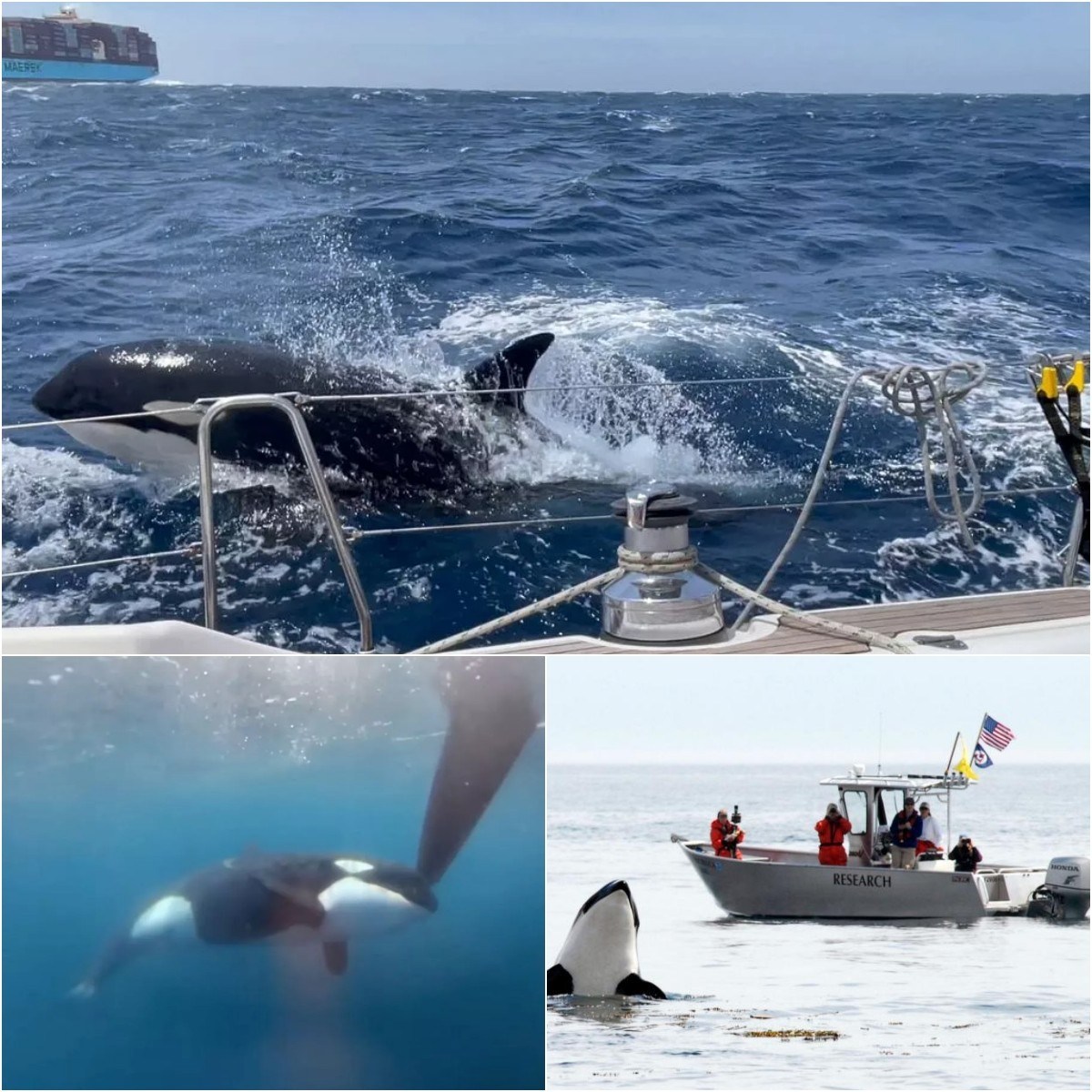The Strait of Gibraltar, a vital maritime passage linking the Atlantic to the Mediterranean, has become an unexpected battleground where orcas, or killer whales, are ramming and sinking boats, sparking alarm and fascination across the globe. Since 2020, nearly 700 interactions, including six sunken vessels, have been reported, with the latest incident sinking the yacht Bonhomie William on July 24, 2024, per The Triton. Social media, particularly X, is ablaze with posts like @BoatBlurb’s “Orcas sink another yacht!” (1.8K likes) and @LiveScience’s “Why are orcas targeting rudders?” (2.3K likes), fueling public intrigue. Marine biologists, from the International Whaling Commission to the University of Seville, offer insights into this unprecedented behavior, suggesting it’s not aggression but a complex mix of play, curiosity, or trauma. This analysis dives into the orca attacks, their causes, expert perspectives, and safety implications, captivating readers with a tale of nature’s mystery and human vulnerability.
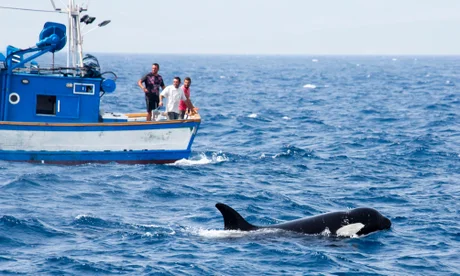
The Surge of Orca-Boat Interactions: A Timeline
Since May 2020, the Iberian orca subpopulation, numbering fewer than 50, has engaged in nearly 700 interactions with boats, primarily sailboats under 20 meters, along the coasts of Spain, Portugal, and Morocco, per Live Science. These encounters, peaking between April and September, have damaged over 250 vessels and sunk six, per Dive Magazine. Key incidents include:
July 2020: Victoria Morris, a biology graduate, reported nine orcas ramming her 46-foot yacht for over an hour off Cape Trafalgar, breaking the rudder and disabling steering, per The Guardian.
July 31, 2022: The first sinking occurred off Portugal when orcas caused structural damage to a yacht, forcing the crew to evacuate, per Sea-Help.eu.
November 1, 2022: The yacht Grazie Mamma II sank near Tanger-Med after a 45-minute orca assault, per Wikipedia.
May 4, 2023: The Swiss yacht Champagne was rammed by three orcas, with smaller ones mimicking a larger orca, sinking at Barbate’s port entrance, per Wikipedia.
May 12, 2024: The Alboran Cognac, a 15-meter yacht, sank 14 miles off Morocco after orcas pierced its hull, per CBS News.
July 24, 2024: The Bonhomie William sank after a pod of five orcas split its hull, per The Triton.
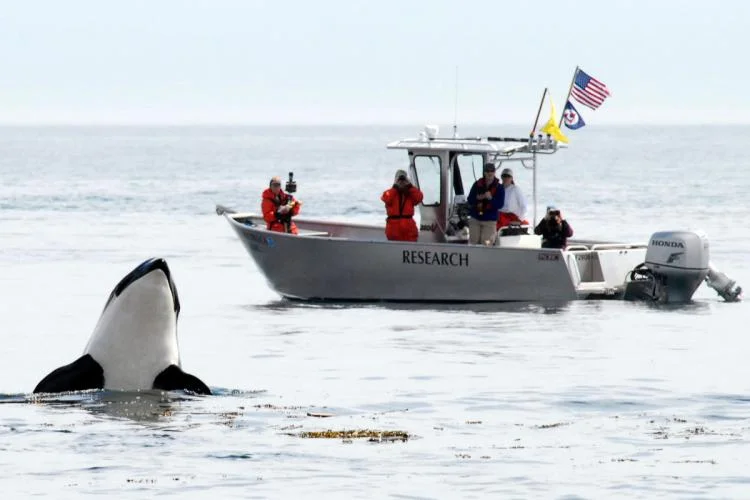
The Cruising Association (CA) reports interactions concentrate in the Strait from April to July, following Atlantic bluefin tuna migrations, with 15 of 35 orcas involved, per Marine Industry News. X posts like @OrcaAttackReports’ “Another yacht down!” (1.5K likes) amplify the urgency.
Why Are Orcas Targeting Boats? Expert Insights
Marine biologists offer varied theories, dismissing notions of revenge or aggression. Alex Zerbini, chair of the International Whaling Commission’s scientific committee, describes the behavior as a “cultural fad” among young orcas, akin to their past habit of balancing dead fish on their heads, per The Independent. Alfredo López Fernandez of the University of Aveiro suggests a female orca, “White Gladis,” may have initiated this after a traumatic boat collision or fishing entanglement, with others imitating her, per Live Science. Rocío Espada, from the University of Seville, notes the behavior’s novelty, saying, “I’ve never seen orcas attack like this,” per The Guardian. The Bottlenose Dolphin Research Institute (BDRI) posits orcas mistake rudders for bluefin tuna, using boats to train hunting skills, per Daily Galaxy. Deborah Giles of Wild Orca emphasizes their intelligence, noting, “Orcas are curious, not malevolent,” per Scientific American. Renaud de Stephanis of CIRCE calls it “play,” advising sailors to keep moving to deter orcas, per Skippers.ch. @TheAthleticOcean’s “It’s a game, not an attack” (2.1K likes) reflects this consensus.
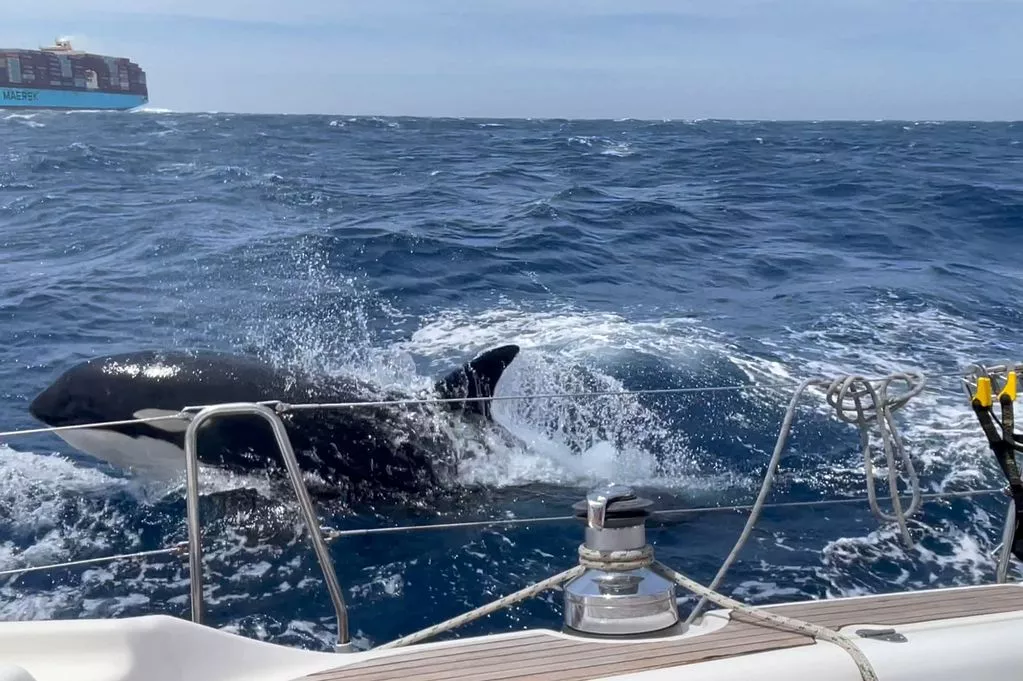
Behavioral Patterns and Environmental Stressors
Orcas target rudders, ramming or biting them, often spinning boats 180-360 degrees, per Wikipedia. Monohulled sailboats (5-21 meters) with spade rudders are most vulnerable, with damage including split or detached rudders, per Sea-Help.eu. The Iberian orcas, genetically distinct and endangered, follow bluefin tuna, their primary prey, per Dive Magazine. Heavy maritime traffic, overfishing, and whale-watching tours disrupt their hunting, potentially causing stress, per The Guardian. Espada speculates that net entanglements or boat strikes may trigger defensive responses, though evidence is lacking, per The Guardian. The CA notes interactions drop in winter, aligning with tuna migration patterns, per Marine Industry News. @GTOA_Orca’s “Tuna scarcity fuels orca stress” (1.7K likes) highlights environmental pressures.
Safety Implications and Mitigation Strategies
No human injuries or deaths have been reported, with crews safely rescued, per CBS News. However, the sinking of six yachts raises safety concerns. The Spanish Ministry of Transport advises avoiding high-risk zones (Gulf of Cádiz to Gibraltar) from May to August and sailing in shallow waters (<20 meters), per CBS News. GTOA recommends not stopping boats during interactions, as orcas lose interest if rudders keep moving, per Skippers.ch. Apps like GT Orcas and Orchinus provide real-time orca sightings, while the CA’s checklist urges skippers to avoid shouting or throwing objects, per Noonsite.com. Modifying rudders to be abrasive may deter orcas, per Daily Galaxy. Portugal’s 2023 ban on tourist boats approaching orcas aims to reduce interactions, per Euronews. @SailmeCharter’s “Stay calm, keep sailing” (1.4K likes) promotes these protocols.
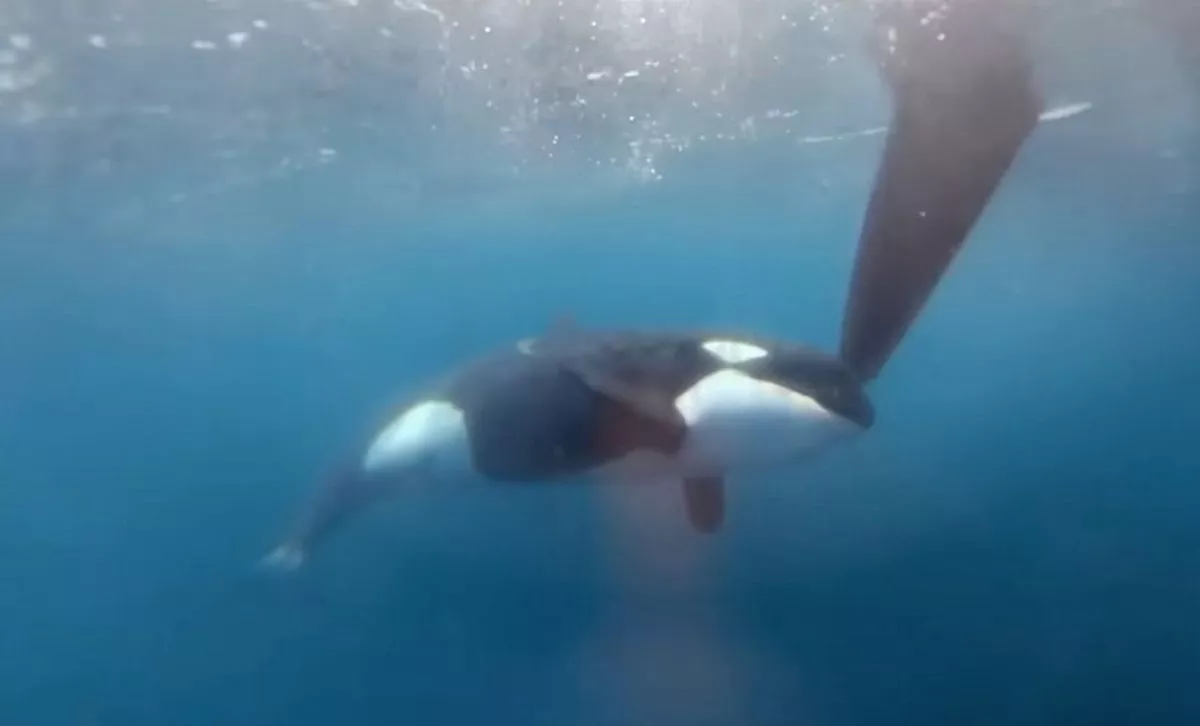
Challenges: Conservation vs. Maritime Safety
The Iberian orca’s endangered status, with fewer than 50 individuals, complicates responses, per The Guardian. Protective laws prohibit harming orcas, limiting deterrence options, per CA. Overfishing of bluefin tuna, down from 2011 levels, threatens their survival, per BBC. Whale-watching tours, often flouting regulations, exacerbate stress, per OceanCare. Balancing mariner safety with conservation is critical, as López Fernandez warns, “This could become a real concern for both,” per Live Science. @OceanCare’s “Protect orcas, regulate boats” (1.9K likes) calls for stricter maritime rules.
Cultural Impact: Fear, Fascination, and Social Media
The orca saga captivates X, with @LiveScience’s “Orcas teaching each other to sink boats” (2.3K likes) and @OrcaAttackReports’ 75K-member group driving engagement. Sailors like Robert Powell, captain of Bonhomie William, reject the “play” narrative, calling it a “well-orchestrated attack,” per The Triton. Public perception oscillates between awe at orca intelligence and fear of maritime risks, per ABC News. The phenomenon echoes historical orca stories, like Tilikum’s captivity trauma in Blackfish, per BBC. The 2025 sailing season, starting April, will test mitigation efforts, per Sailme Charter.
The orca attacks in the Strait of Gibraltar, from 2020’s first ramming to 2024’s sixth sinking, reveal a complex interplay of play, curiosity, and environmental stress, per The Independent. Experts like Zerbini and López Fernandez dismiss aggression, pointing to cultural fads or trauma, while sailors face real risks, per Live Science. With nearly 700 incidents, mitigation strategies—shallow sailing, moving rudders, and apps like GT Orcas—aim to protect mariners and endangered orcas, per CBS News. X buzz, from @BoatBlurb’s “Orcas just having fun” (1.8K likes) to @GTOA_Orca’s conservation pleas (1.7K likes), amplifies the drama. As the 2025 season looms, will humans and orcas coexist safely, or will this fad escalate? This marine mystery continues to grip the world.

